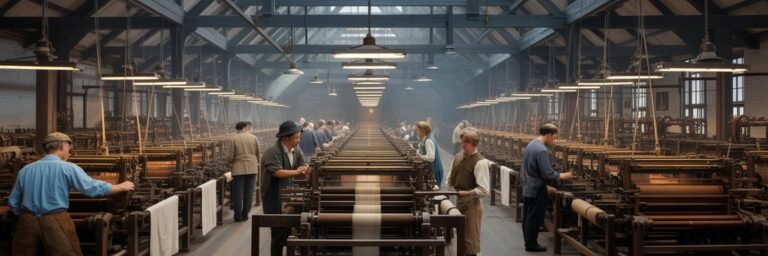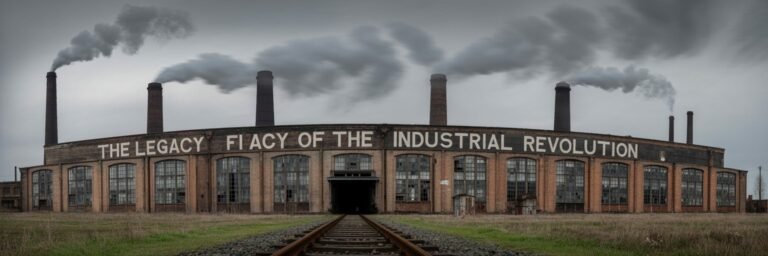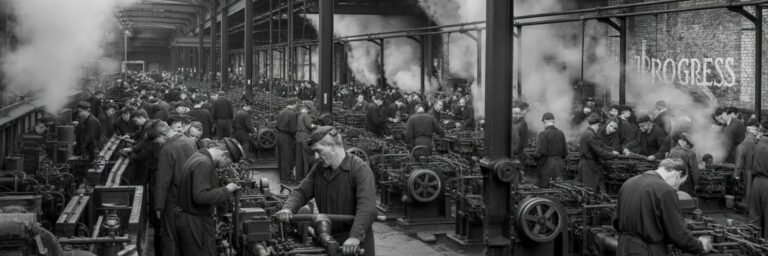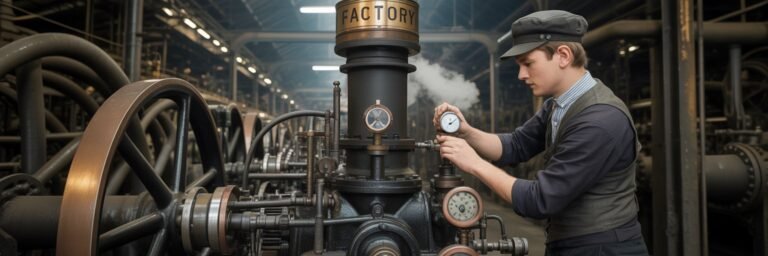INTRODUCTION
The Industrial Revolution, a period enveloped by radical and rapid change, marked the conversion of agrarian societies into modern, industrial ones between the late 18th and mid-19th centuries. Despite its transformative significance, it was not universally celebrated. From child labor to environmental pollutants to socio-economic disparities, this paramount era was riddled with debatable situations that have remained subjects of intense historiographical discourses. In its transformative strides, the Industrial Revolution left behind an intricate web of controversial moments that still resonate today.
HISTORICAL BACKGROUND
Beginning in Britain around 1760 before spreading to other parts of the world, the Industrial Revolution was an epoch of significant technological advancements that revolutionized labor and ways of life. Mirroring the rise of machines and industry, societies began to visibly shift from rural, agricultural livelihoods to urbanized, factory-based production—a phenomenon that later intricately intertwined with the capitalist system. The revolution also brought significant developments in transportation and communication, most notably the steam engine, the railway system, and the telegraph.
However, this transformative period was not without detractors who pointed to the exploitation of labor, including extensive use of child labor, debilitating working conditions, and the stark socio-economic chasms between industrial entrepreneurs and factory workers. Embroiled in this transitionary turmoil, many working-class families were forced to cope with the crushing realities of industrial wage labor, often under deplorable conditions.
THEORIES AND INTERPRETATIONS
Historians widely concur that the Industrial Revolution significantly influenced societies and economies. However, perspectives on its positive and negative impacts vary greatly. The techno-optimist view, championed by scholars like Robert Allen, highlights increased productivity, improved living standards, and economic progress, while the pessimistic lens brings into sharp relief the social costs stripped bare by industrialization.
Some historians like J.L. and Barbara Hammond, in their seminal work ‘The Town Labourer’, focus on the atrocious labor conditions, arguing that the Industrial Revolution brought about more detriment than advancement, particularly for the working classes. Conversely, economist N.F.R. Crafts posits that these harsh conditions might have been exaggerated and sees the revolution as a primary catalyst for long-term economic growth and societal advancement.
MYSTERIES AND CONTROVERSIES
The Industrial Revolution was an epoch indiscriminately dotted with contentious points. For instance, ‘The Factory Acts’, formulated to regulate working hours and conditions, have drawn considerable controversy. While viewed as a step towards improved labor rights, some argue these acts were ratified to maintain control over an increasingly resistant working population, ultimately serving the interests of the bourgeoisie over the proletariat.
The ‘Lake Paterson Textile Strike of 1844’ where workers, many women, protested against worsening conditions and wage cuts, reminds us that resistance to industrial exploits was widespread and substantial, despite being underrepresented in mainstream historiographical discourse.
Another defining controversy is the ‘Luddite Movement,’ where English artisans violently protested against industrial machinery that threatened their livelihoods. Often mythologized and trivialized as a technophobic nuisance, recent interpretations suggest the Luddites were, instead, a genuine socio-political reaction against exploitative industrialization.
SYMBOLISM AND CULTURAL SIGNIFICANCE
The Industrial Revolution wasn’t merely an economic or social transformation, but also a significant cultural shift. Machines and factories, symbols of newfound progress and prosperity, simultaneously embodied the specters of dehumanization and worker exploitation. The enduring image of ‘dark satanic mills’ from William Blake’s poem “Jerusalem” underscores the harsh realities of industrialization.
Similarly, the Luddite Conflict has emerged as a cultural metaphor, symbolizing resistance against unchecked technological advancement. Additionally, the ‘Factory Acts’ and labor strikes exemplified early manifestations of modern labor rights movements.
MODERN INVESTIGATIONS
In recent years, the topic of environmental impact associated with the Industrial Revolution has gained greater foothold among historians. Scholars like John. L. Brooke in ‘Climate Change and the Course of Global History’ have highlighted how industrialization set the groundwork for the modern era’s aggressive, often irresponsible, resource consumption.
Investigations into the living conditions of the working classes have also intensified. Detailed explorations of worker housing, sanitation, and health care provide more nuanced understanding of the multidimensional impacts of the Industrial Revolution.
LEGACY AND CONCLUSION
The legacy of the Industrial Revolution is as profound as its controversies. Today, confrontations between technological advancement and societal cost live on in debates around automation, digital economies, and artificial intelligence, reflecting the same dialectic between progress and exploitation that marked the industrial era.
From an economic perspective, the Industrial Revolution provided the foundation for modern capitalism and the global economic infrastructure. Yet, its social legacy—a world sharply divided by stark economic disparities—remains an evident reminder of the profound human costs of industrial progress.
Simultaneously, the period’s labor activism laid crucial groundwork for contemporary labor rights and underscored the importance of equitable sharing of benefits derived from technological progress.
The Industrial Revolution was not just a discrete historical event but a complex, controversial transformation that continues to inform our world—politically, economically, socially, and culturally. By understanding this, we can understand the inherent power and responsibility that comes with progress—and perhaps navigate our technological future with greater caution and wisdom.






